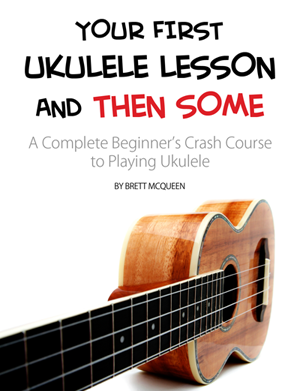There comes a point in a ukulele player’s journey where one must face head on, with courage and bravery, that dreaded and difficult-to-play E major chord on ukulele.
By learning the E chord on ukulele, you unlock a whole new world of playing songs on the ukulele with the most notable song using the E chord being Hey Soul Sister by Train.
Don’t worry because together in this lesson we look at three of the best ways to play the E major chord on ukulele. I provide you with three variations of E major and give you the pros and cons of each, so you can learn how to play the E chord and determine which one is easiest for you.
Watch the video and learn how to play E major on ukulele.
How to Play the E Major Chord on Ukulele: Variation #1
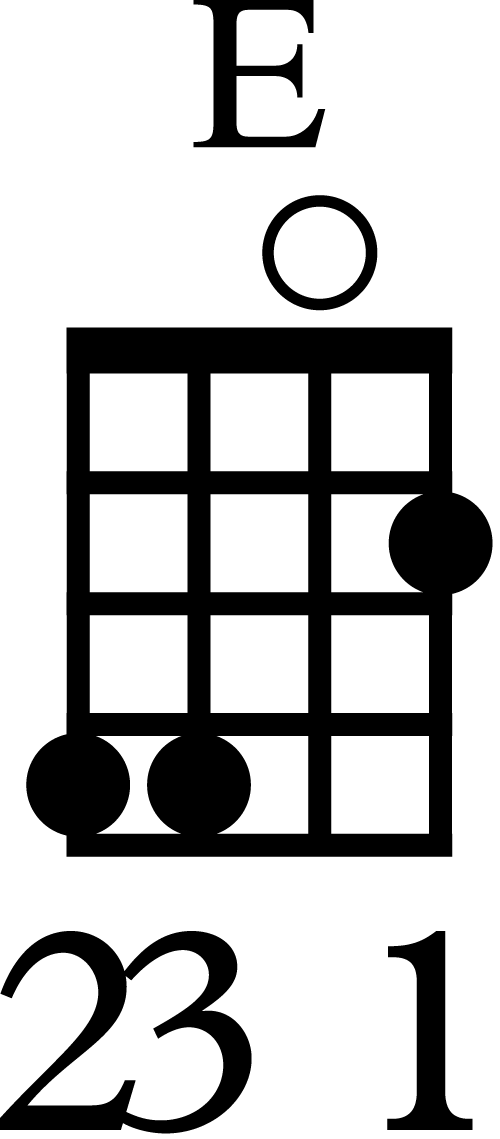
To play the E major chord on ukulele in this first variation, place the middle finger at the 4th fret of the top g-string, ring finger at the 4th fret of the C-string, and index finger at the 2nd fret of the bottom A-string. Let the E-string ring open.
How to Play the E Major Chord on Ukulele: Variation #2
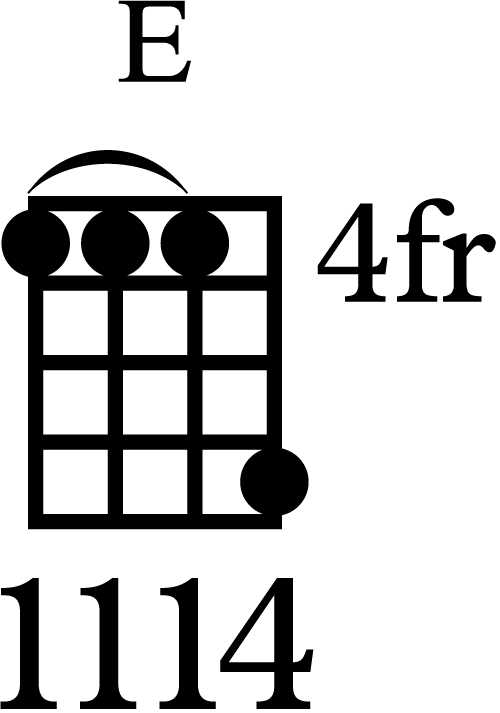
To play the E major chord on ukulele in this second variation, perform a barre by pressing your index finger on the top g-string, C-string, and E-string on the 4th fret and place the little finger on the 7th fret of the bottom A-string.
How to Play the E Major Chord on Ukulele: Variation #3
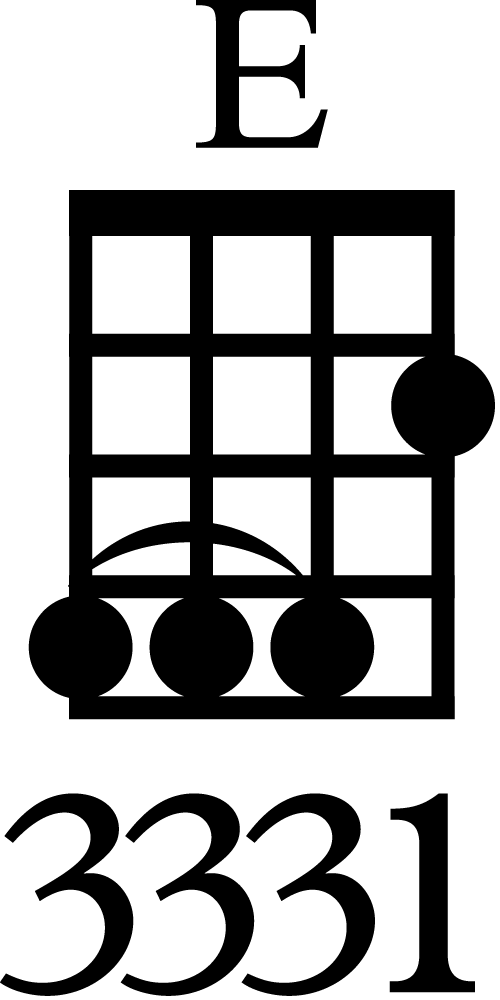
To play the E major chord on ukulele in this third and most popular variation, perform a barre by pressing your index finger on all four strings on the 2nd fret and perform a barre by pressing your ring finger on the top g-string, C-string, and E-string on the 4th fret.
Be sure to watch the video to get tips for playing this tricky position.
How to Play the E Major Chord on Ukulele: Variation #4
This fourth variation of the E major chord is the same chord as Variation #3 but uses a different fretting hand position.
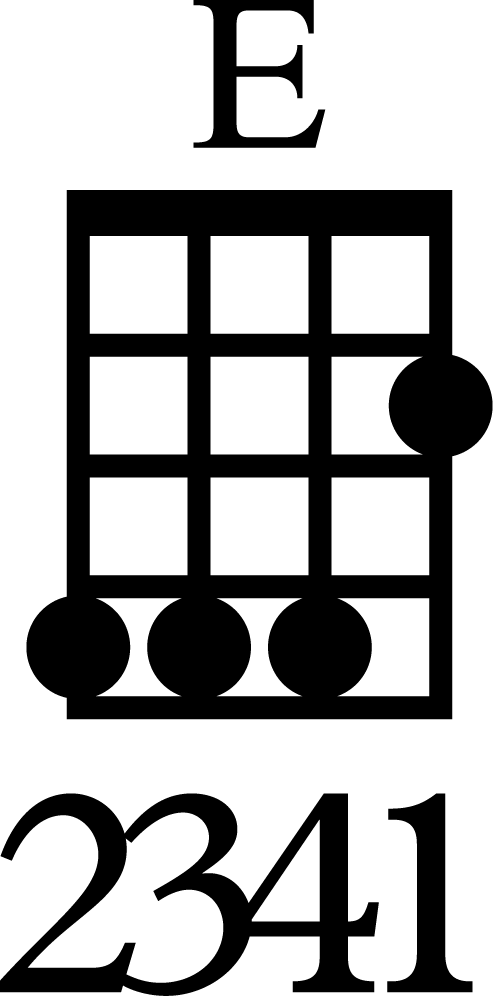
To play the E major chord on ukulele in this fourth variation, place the middle finger at the 4th fret of the top g-string, ring finger at the 4th fret of the C-string, little finger at the 4th fret of the E-string, and index finger at the 2nd fret of the bottom A-string.
I recommend using this Variation #4 if you have small hands and fingers, but for those of us with larger hands and fingers (like myself), learning Variation #3 is better.
Was This Chord Too Hard to Learn?
The E major chord on ukulele is infamous for being the hardest chord to play on ukulele.
If you’re a beginner and this was too difficult, don’t be discouraged. I recommend starting with the free ukulele lesson book Your First Ukulele Lesson and Then Some where I teach you easy ukulele chords and how to apply those to strum and play actual songs.
Enter your email address below to grab your free copy:

